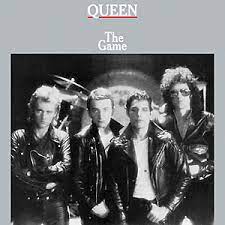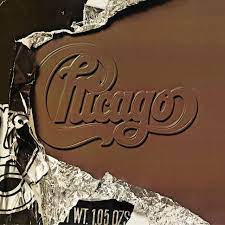Tutorial Pricing: $3.25ea OR any 10 for $10
(use code "Any10410" at checkout)
Paid Requests for $25ea
(comes with any 8 freebies -> so 9 for $25)
100's Of Free Demos & Chord Sheets
Best Songs By ABBA
On The Acoustic

Welcome to my best songs by ABBA page that not only shows you how to play this great song but 12 others you can easily learn on guitar.
Below is an overview demo, free ABBA chords sheets in .pdf format you can download, some tips on rhythm and a bit about each song. I've also included ABBA album covers below so you'll know where the songs originated.
If you'd like to purchase the full lesson tutorials for a few bucks each, those links are available below and helps out the site.
Who Is ABBA?
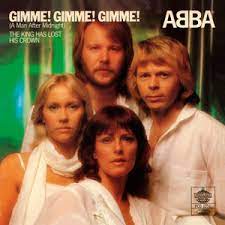
ABBA was a Swedish pop group that achieved international fame in the 1970s and 1980s. The group's name is an acronym formed from the first letters of the names of its members: Agnetha Fältskog, Björn Ulvaeus, Benny Andersson, and Anni-Frid Lyngstad.
ABBA's music is known for its catchy melodies, harmonies, and elaborate arrangements. Some of their most famous hits include songs like "Dancing Queen," "Mamma Mia," "Waterloo," and "Take a Chance on Me." The group gained widespread popularity after winning the Eurovision Song Contest in 1974 with the song "Waterloo."
ABBA disbanded in 1982, but their music continued to be popular, and they are considered one of the best-selling music artists in history. The group made a comeback in 2021, releasing new music and announcing a virtual concert experience using holographic avatars of the four members.
Dancing Queen
Does You Mother Know
Fernando
Gimmie Gimmie Gimmie
Hasta Manana
I Have A Dream
I'll Be Waiting For You
Knowing Me Knowing You
Mamma Mia
Slipping Through My Fingers
SOS
The Winner Takes It All
Waterloo
When I Kissed The Teacher
ABBA Overview Video
Best Songs By ABBA Band
Chords, PDF's & More
Chiquitita

Chiquitita was released by ABBA in 1979 as part of their album "Voulez-Vous." Originally not planned as a single, the band changed their minds after completing the recording, recognizing its potential impact.
The title "Chiquitita" translates to "little one" in Spanish, reflecting the tenderness embedded in the song's lyrics. Notably, ABBA demonstrated their philanthropic spirit by donating half of the royalties generated by the track to UNICEF, the United Nations Children's Fund.
The band's decision to release versions of the song in both English and Spanish broadened its global appeal, contributing to its massive international success. "Chiquitita" remains a cherished piece in ABBA's discography, showcasing their musical prowess and compassionate engagement with social causes.
There is no drop D tuning or capo required for this song. There are two rhythm patterns used. The one for the verse is more of a steady
shuffle and in the chorus it changes to a root down root up down up root
down root up down up .. like many country songs. There is some lead picking to learn. The chords required are A, E, Esus, D and a Bm.
Jump To Top
Dancing Queen
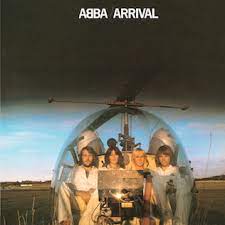
Dancing Queen, released in 1976, stands out as their sole number one hit in the United States. Despite being their only chart-topper in the U.S., the song achieved immense success globally, becoming a sensation in numerous countries.
Notably, "Dancing Queen" was crafted by the male members of the group, Björn Ulvaeus and Benny Andersson, as a deliberate move to embrace the disco trend that dominated the music scene in the mid to late 1970s. With its upbeat tempo and catchy melody, the song perfectly encapsulated the disco vibe of the era.
Over the years, "Dancing Queen" has not only retained its popularity but has also become a widely covered and recognized ABBA classic, showcasing the group's ability to craft timeless and universally appealing music.
You'll need a capo on the 2nd fret to stay in the original key with standard tuning. You'll play a shuffle rhythm mainly to play this song properly. Thankfully there is no lead picking in this one while playing the chords G, C, D, B7, Em, Em/D, A7, Am, C/G and a D7.
Jump To Top Of Best Songs By ABBA
Does Your Mother Know

Does Your Mother Know is a song by a famous Swedish pop group called ABBA. It was the second single from their album called Voulez-Vous.
The song was recorded in February 1979 and then released as a single in April of that year. It was written by Benny Andersson and Björn Ulvaeus. When they first recorded it, Ulvaeus sang the guide vocal, and they decided to keep his voice for the final version.
"Does Your Mother Know" became a big hit for ABBA. It reached number 1 in Belgium and made it to the top 5 in Great Britain, Ireland, the Netherlands, and Finland. It was also popular in other countries like Australia, Canada, West Germany, Rhodesia, and Switzerland. In the UK, it's one of ABBA's most popular songs, even in 2021.
In 2019, they re-released the single on a special kind of record called a picture disc.
For an acoustic play you'll play in standard tuning with the chords G, Em, C, G6, Am, D, G7 and Cm. There are no picking or lead segments in this song so you'll play a basic down up down up pattern for rhythm or you could also play all down-strokes.
Jump To Top Of Best Songs By ABBA
Fernando
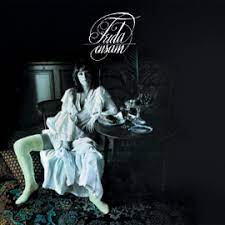
This song Fernando, was not on any previous ABBA album but was written specifically for Anni-Frid-Lyngstada's album and latter placed on their Greatest Hits album in 1976 as an "extra" track.
They changed the name to Fernando after the name of a bartender at a local bar in Stockholm where they would gather for a drink.
A Swedish, Spanish and English version was released and with the English lyrics being a much different story than the other versions.
On guitar you'll need a capo on the 2nd fret to play in the original key but no alternate tuning is required. Use these chords of G, C, Em, Am, D, E, E7 and A7. This this one has a shuffle and a quick
shuffle which imitates a drummer. As well there is an arpeggio section
where notes on the chords are played as part of the rhythm. Finally you have a root down up
down up, root up down up pattern There is also a bit of picking in this song.
Jump To Top
Gimmie Gimmie Gimmie

Gimmie Gimmie Gimmie was a single release and not from any individual album.The song was never released as a single.
This song can be played in standard tuning and without a capo. For rhythm you'll play mostly down-strokes throughout and a bit of lead picking is required to pull this one off with a single acoustic.
The chords required are A, D, E, E7 and a G.
Download the free ABBA Gimmie Gimmie Gimmie lyrics below.
Jump To Top Of Best Songs By ABBA
Hasta Manana

Hasta Manana was the last single from the groups 1074 album Waterloo. It was a top 20 in Australia and a top 10 in New Zealand on it's first release in 1974. They re-released the songs again as a single in 1976 and it made it to #2 in South Africa.
I play this one with a capo 3rd fret with a root down up down up rhythm pattern. No lead, just a few notes in the beginning. The chords are D, Gbm, G, A, A7, B7, Em, Gm and then a key change near the end with the chords A#, D#, G#m, C7, G# and an Fm.
Jump To Top Of Best Songs By ABBA
I Have A Dream
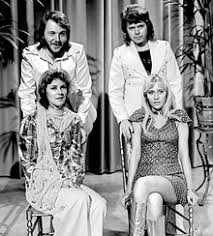
I Have A Dream was written by the two male members of ABBA in 1976 but the band never released it as a single until Dec 1979 when it hit the top of the charts in many countries.
It's the only ABBA song that has non ABBA members singing on their song. This was a group of school kids from the international School Of Stockholm.
A capo on the 3rd fret will get you in the original key using standard tuning. It's a simple three chord song using G, C and D with a riff throughout. You can use down strokes to play the riff and the rest is of the rhythm pattern can be played with a root down up root up down up.
Jump To Top
I've Been Waiting For You
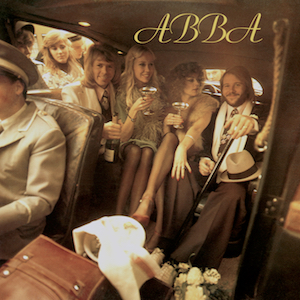
I've Been Waiting For You is a track from the 1975 album ABBA.
At first, it was the B-side to another song called "So Long." Later, it was also included on their album called ABBA, which came out in April 1975.
In Australia, they released it as a single in 1975 with another song called "King Kong Song" on the other side. It reached number 49 on the charts there. In New Zealand, it was released as a single in 1977 and reached number 8 on the charts.
In 2018, "I've Been Waiting for You" was released again on July 13th. This time, it was part of the soundtrack for the movie Mamma Mia! Here We Go Again. The song was released by Capitol and Polydor Records.
Play this one with a capo on the 2nd fret using the following chords which are G, D/Gb, Em, Bm, C, A7sus, A7, Am7, D7, Dm/Ab and a Dm7. This isn't any lead work in this tune and the pattern for rhythm that will work well is a
down down up down down up and repeat.
Jump To Top
Knowing Me Knowing You
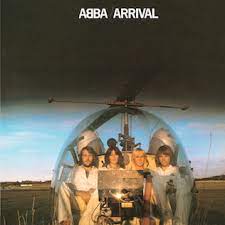
Knowing Me, Knowing You is a song recorded by the famous Swedish pop group ABBA. They released it in February 1977 as the third single from their album called Arrival, which came out in 1976. The song was written by Benny Andersson, Björn Ulvaeus, and Stig Anderson, and it features Anni-Frid Lyngstad as the lead singer.
They recorded "Knowing Me, Knowing You" in 1976 at the Metronome Studios in Stockholm. Then, they released it as a single in February 1977, and it became one of their most successful hits.
"Knowing Me, Knowing You" was one of the first ABBA songs that talked about a breakup in a relationship. It came out before any of the ABBA members got divorced. Later, they would release more songs about breakups, like "The Winner Takes It All," "One of Us," and "When All Is Said and Done."
Benny Andersson, one of the group members, said in a 2004 interview that "Knowing Me, Knowing You" was one of ABBA's best recordings, along with songs like "Dancing Queen," "The Winner Takes It All," and "When I Kissed the Teacher."
Acoustically this can be played in standard tuning using the chords F, Dm, Am, G, C, Em, E and an Esus. There is a steady shuffle pattern mainly
in the chorus but in the verse you'll use down-strokes with some shuffle
and in the picking sections you'll use a down down up down down up
pattern .. you'll hear the difference. The riff section is picked with rhythm.
Jump To Top Of Best Songs By ABBA
Mamma Mia
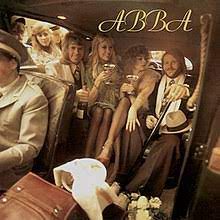
Mamma Mia, which means "my mother" in Italian but in reality equates to the English expression "my my", was released as a single in 1975.
A music video for this song certainly helped promote their bands image and the song itself.
No capo and standard tuning will get you through playing this one using the chords D, Daug, G, A, C, A/Db, Bm, Bm/A and an Em.
The rhythm for this one has a shuffle which I class as one of
those gallop down down up down patterns and a steady up and down pattern
as you play some riff notes. There is some picking across the rhythm required to make this one sound full with one guitar.
This is another ABBA cover that's fun to play on the acoustic. Download the free ABBA Mamma Mia lyrics below.
Jump To Top
Slipping Through My Fingers
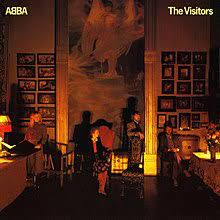
In 1981 Slipping Through My Fingers, from "The Visitors" album, was released as a single, but only in Japan.
It was the only song as there was no recording on the B-side, just the picture of the group standing on a Coca-Cola logo. Now that's strange.
This one is best played with a capo 3rd fret to stay in the original key using standard tuning. For rhythm you can mainly use down-strokes with the chords G, A7, D, Gm, Gbm, A7sus, A7, Gb, Em and a D/Gb.
There is also some lead work in this song.
Jump To Top Of Best Songs By ABBA
SOS
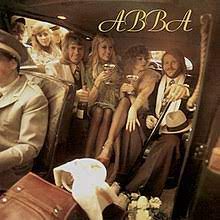
SOS is a song by ABBA released in June 1975 as the fifth single from their album titled ABBA, which came out in the same year.
The song was released with another song called "Man in the Middle" on the other side of the record. Agnetha Fältskog, one of the singers in ABBA, recorded a Swedish version of the song for her solo album which came out in 1975.
"SOS" became a big hit for ABBA worldwide, following their earlier success with "Waterloo." It was written by Benny Andersson, Björn Ulvaeus, and Stig Anderson and was recorded in Sweden in August 1974.
"SOS" helped ABBA regain popularity and became a top 10 hit in many countries. It reached number 6 in the UK and number 4 in Ireland, starting a streak of 18 consecutive top 10 hits for ABBA in the UK and Ireland. The song reached number 1 in several countries including Australia, Belgium, France, West Germany, New Zealand, and South Africa.
It was also a top 3 hit in several other countries.
A capo 3rd fret is where I play this one.To get this to work acoustically, you'll be playing some piano riffs during
the rhythm and then play mostly downstrokeS during the verse along with some
shuffle rhtyhm. For the chorus use a down up down up pattern. The chords you'll need ara Bm, Gb7, D, A, Em, G and an A#.
Jump To Top Of Best Songs By ABBA
The Winner Takes It All
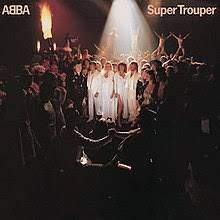
The Winner Takes It All was released as the first single from their album called Super Trouper in 1980. It's a bit of a sad song about the end of a relationship.
The song became a big hit, reaching number 1 in many countries, including the UK, where it was their eighth chart-topper. It was also one of ABBA's last top 10 hits in the United States. It was written by Björn Ulvaeus and Benny Andersson, and Agnetha Fältskog sang the lead.
In a poll done by Channel 5 in 1999, "The Winner Takes It All" was voted as Britain's favorite ABBA song.
Björn Ulvaeus said he was drinking whiskey when he wrote it, and it was the quickest he ever wrote lyrics. He said the words just came to him in one hour. When he showed the lyrics to Agnetha Fältskog, she got emotional and had tears in her eyes because the words affected her so much.
Play this one with a capo on the 4th fret using the chords D, A, Em, A7, Gb, Bm and a B7. You'll need to pick some riffs while singing this number so it will take a bit of practice. The rhythm pattern here pretty much a root up down up pattern.
Jump To Top Of Best Songs By ABBA
Waterloo

Waterloo was released as the single that won the Eurovision Song Contest in 1974. It marked ABBA's breakthrough on the international music scene, propelling them to fame and launching their successful career.
The song is an upbeat and catchy pop tune, with a driving beat and memorable hooks. Its lyrics tell the story of a person who surrenders to love, likening it to the defeat of Napoleon Bonaparte at the Battle of Waterloo. The song's title references this historical event, using it as a metaphor for a decisive and dramatic moment in a romantic relationship.
"Waterloo" was written by Benny Andersson, Björn Ulvaeus, and Stig Anderson, the primary songwriting team behind ABBA's success. It was produced with ABBA's signature polished sound, featuring lush vocal harmonies, catchy melodies, and upbeat instrumentation.
Upon its release, "Waterloo" became an instant hit, reaching the top of the charts in numerous countries around the world. It solidified ABBA's reputation as one of the leading pop acts of the 1970s and remains one of their most iconic and beloved songs to this day.
The song is played with a steady up and down rhythm and some walking bass added into the chorus. There is no lead in this one and uses the chords D, E, A, Bm and G in standard tuning.
Jump To Top Of Best Songs By ABBA
When I Kissed The Teacher
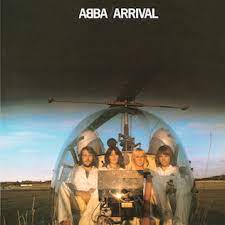
When I Kissed the Teacher is a song from ABBA's album Arrival, which came out in 1976. They started recording the song on June 14, 1976, originally naming it "Rio de Janeiro." Eventually, they changed it to "When I Kissed the Teacher."
The song has fun, light-hearted lyrics about a student who has a crush on her teacher. One day, she can't help herself and kisses him. The music is upbeat and lively. Benny Andersson, one of the members of ABBA, really liked this song bu the song failed to chart in the US and it's highest chart position was in Hungray reaching #15.
I play this one with a capo on the 1st and using a steady up and down rhythm, with a few chops when you get into the chorus. There is no picking sequences to be concerned about with standard tuning and using the chords D, G, Gbm, Bm, Em, A7, Bm/A, D7, E and an A.
Jump To Top Of Best Songs By ABBA
Thanks for dropping by my best songs by ABBA acoustic guitar covers page and I hope you found the info here for the most popular ABBA songs helpful.
If you liked this ABBA page you might also like ... (click images)
ABBA Documentary
Acoustic Versions Of Rock Songs

